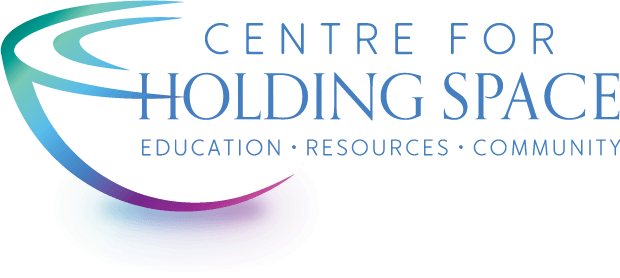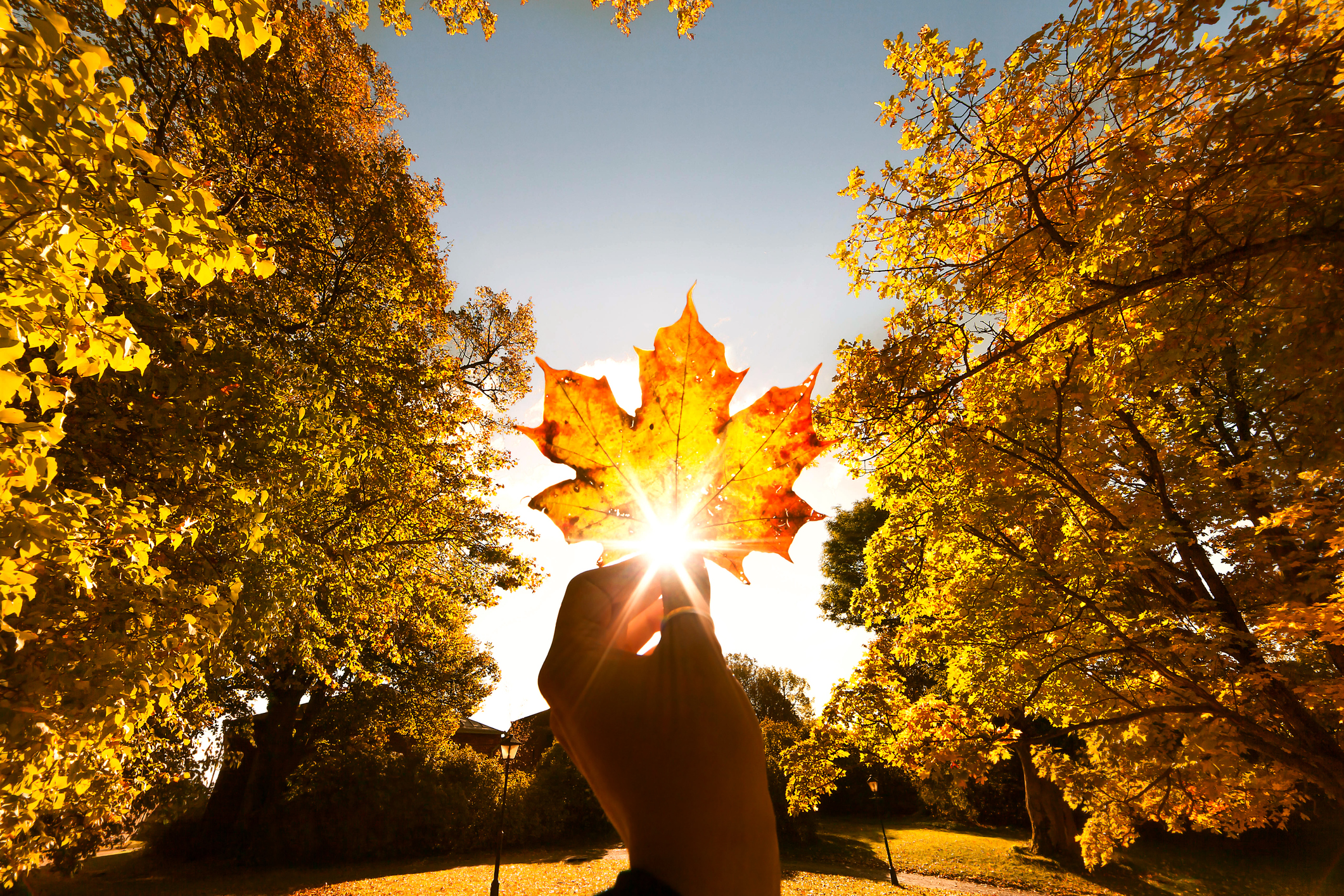Listen to Krista read the post:
It’s sunny this morning. An autumn sun – somehow mellower than how I experience it in the spring or summer — or even the winter. No doubt I’m reacting more to its reflection off yellowing leaves and browning grass, the tell-tale signs that winter is again around the corner.
I have lived in this province for 44 years and I still struggle with the changing of the seasons. My circadian rhythms find it difficult to adapt to the later sunrises and earlier sunsets and the re-started routines imposed by my kids’ return to school.
I am headed to my church office from my youngest son’s school after dropping off some random school supplies I found in a closet. I pass by a large line of striking public employees, making their slow march, for the second week in a row, down the sidewalk across from my church. They are the second group of public employees to engage in strike action in a month. I feel proud of them, even though their actions will likely cause me some inconveniences and I’m fairly sure the autobody work of a friend has likely been seriously impacted (the striking workers are from our province’s public insurance department, so auto claims will be seriously backed up).
As I pass these unionized folks, fighting for fair wages for their own families in the present, I think about how they are participating in a long history of workers who have fought for their rights through strikes. I think about how their actions are also in service to people who will come after them.
Thanks to the news and social media, I am keenly aware of other strikes happening across the world. The writers and actors strikes in the United States. The labour strikes in France.
I have been reading the book “The Temple at the End of the Universe” by Josiah Neufeld over the last few days, so jumping from thinking about strike action to protests and demonstrations over climate change, Indigenous land rights, Trans rights, BLM, and Search the Landfill is not a big one. Neufeld’s book examines his own spiritual and moral journey away from the world of Evangelical Christianity, especially in relation to climate change, and he talks about joining the Wet’suwet’en pipeline protests in British Columbia, three provinces west of me.
I am keenly aware of how warm Septembers have been here over the last few years. It was hard to ignore the persistently smokey sky from the many and various forest fires that raged all over Canada this summer, too.
As I approach the church, I notice the anxiety niggling at my belly. Since starting my medication back in May, it seems as though anxiety has become more localized in my body. Before, I had trouble naming where in my body I most felt stress because it usually flooded the whole of me. The meds have made the sensation smaller. More manageable in some ways. I can breathe into my belly now and feel the niggling ease a bit. I can practice some mindfulness and have that feel impactful rather than giving up in despair.
It doesn’t solve anything, of course, but it helps me get through the day.
Here in Canada, we just passed September 30th, National Day for Truth and Reconciliation. On this day, we are asked to remember, honour, and find ways to work towards reconciliation over the thousands of Indigenous children who were forcibly removed from their families and made to attend (usually church-run) residential schools where they were often mistreated or abused and, frequently, from whence they never returned home. Or, if they did, they did not return home entirely whole and healthy. It is not a happy holiday. It is a hard and complicated day of reckoning.
All of these things are on my mind as I settle into my office to write this.
I have spent the last month aggressively purging my home – going into storage spaces that I have shoved things into over the last 14 years and vowed ‘to figure out later’ and stripping them bare. I have brought boxes and bags of items that were hiding in these spaces to thrift stores (and before you scold me over the state of western disposable culture, please know that I know, but it seemed better to try to find these items another home than to put them into a landfill). There is no Marie Kondo or Swedish Death Cleaning method happening. I am being fairly unscrupulous. If this was the first time I have looked at the thing in 14 years, it’s moving on to its next life – regardless of where I got it or who gave it to me or what imagined future it might once have had in my mind.
I don’t know if it’s all related – my thoughts on unions, protests, climate change, reconciliation, and my need to purge all the spaces in my home. I don’t know if it’s my attempt at dissipating some of the helplessness I feel about all of those big, seemingly unsolvable issues.
I do know that I am on the verge of some significant life changes. I am experiencing some of them even now. With my kids now 15 and 12, they have moved into an independence that feels new to me. Both of them have taken responsibility for getting themselves up and ready for school on time. They make their own lunches. They are currently biking themselves to school without me needing to nudge them out the door. All of the energy I used to spend in the mornings managing those things is suddenly gone. It’s a tad disorienting, to be honest. Without those things to think about, I have noticed it is taking my brain a lot longer to engage in the morning.
I am in the last months of my job with my church. As I walked into my office today, I glanced at the shelves of books I have stored here and knew that many of them would not be coming back home with me once I was done here. This chapter of church leadership is coming to what feels like a definitive close for the first time in my life. I have been engaged in some kind of leadership in church settings since I was 16. That is the better part of my life by now.
My work with the Centre is on the verge of expanding. And while I am somewhat anxious about filling up our programs and the huge investment we are making in upgrading our website and improving our marketing, I also feel a strange sense of groundedness about it all. As much of a stretch the last few months have been for Heather and me, this feels like brickwork – making the foundation of the Centre stronger so that it can hold more. More of me. More of Heather. More of our teams. More of our bigger Holding Space community.
The adage that the older you get, the less you know feels true for me. I am less certain about more things than I was 20 years ago. But one thing I am sure about is that the work of Holding Space (bear with me, this is gonna sound trite)… works.
Heather and I have spent the last seven years of our relationship engaged in navigating what it means and what it looks like to Hold Space for ourselves individually, for each other, for the ‘we’ of our partnership, for our team, and for our business. We may not have degrees in this stuff. We may be one of those companies that ‘invented a certification program’ to put into the world. But we live this stuff every day together. We learn on our own, in our individual circumstances, we learn with each other, one-on-one, we learn with our team, and we learn with our participants. Holding Space, as we teach it, is a set of tools for your tool kit, yes. But it is also a posture of being in the world that comes back, again and again, to the sovereignty and liberation of all people.
This means work. This means deep listening. This means messing up and owning our mistakes and making amends where appropriate. This means having exquisite tenderness for ourselves and for each other, over and over and over again.
We are not so deluded as to think that Holding Space can cure the world overnight. It’s not going to reverse climate change, or bring justice to Indigenous groups, or fix our economic systems, or stop wars, or change oppressive and abusive systems by 2025. However, we do believe it can impact individuals and the systems within which they work to help us all begin to move the needle on some of those things. It can empower people to greater love of themselves. It can make them lean into braver, more honest, more vulnerable conversations. It can help people release attachment to all the ‘shoulds’ that clog up our relationships. It can provide a shared language that can help us all move into a shared, interconnected, compassionate humanity that maybe could, one day, actually change the world.
I may not live long enough to see those changes. But I want to engage in work that has a long history of teaching people to be in better communication, and that has the potential to positively impact future generations by providing them with tools and compassion that will always be needed.
Consider joining us as we continue learning. The How to Hold Space Foundation Program starts in a month. We would love to be human with you there.

